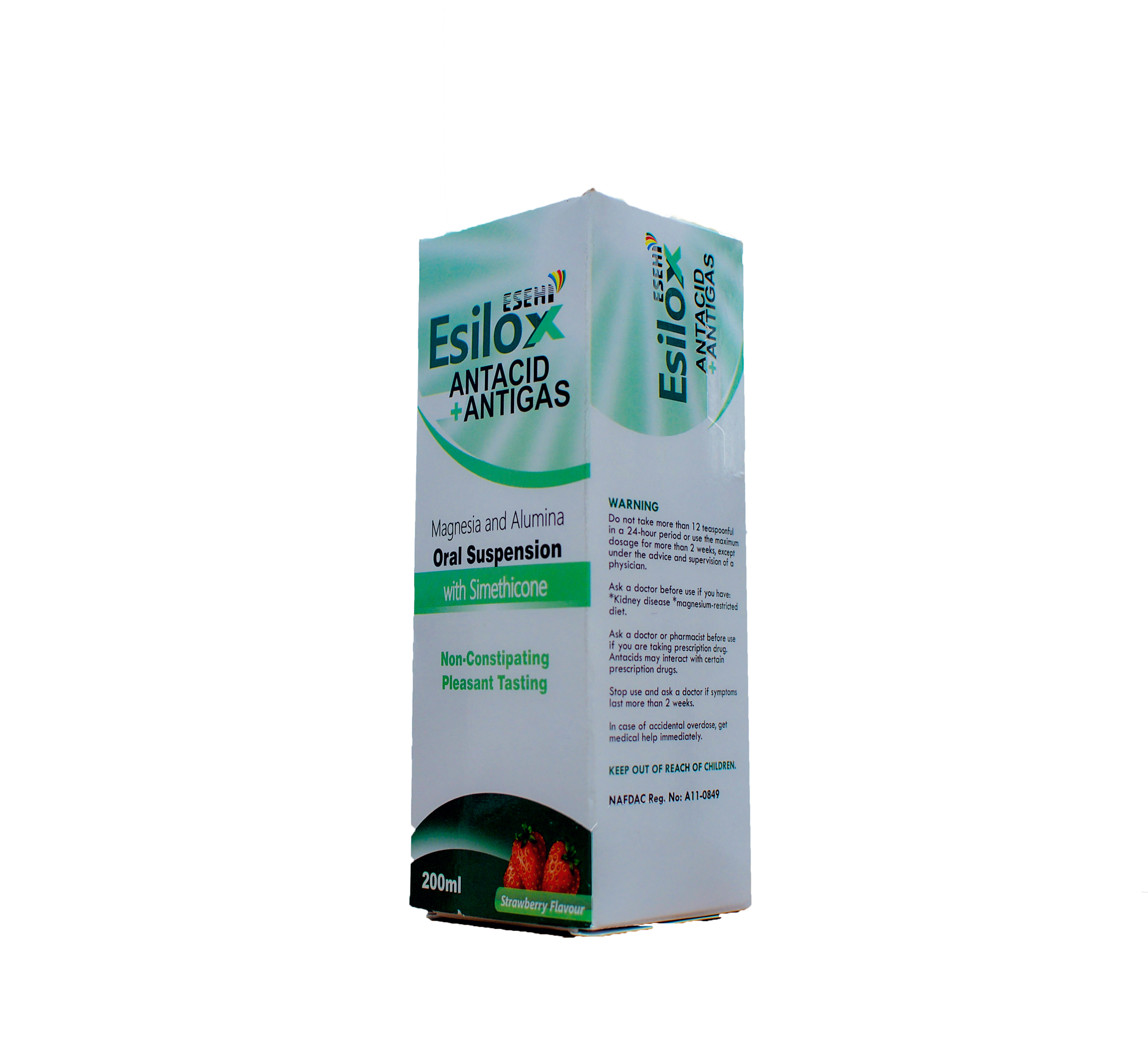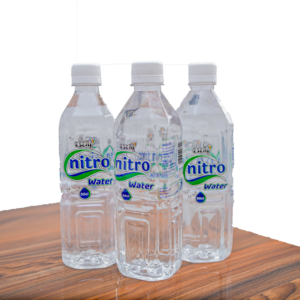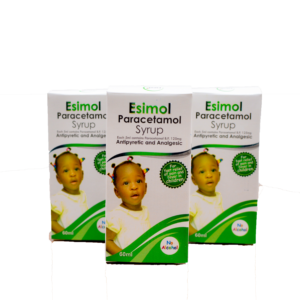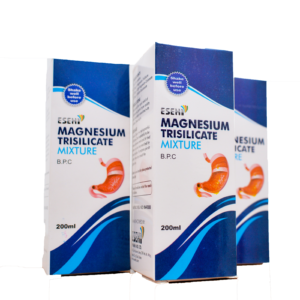Description:
For relief from discomfort of painful wind, indigestion, heartburn and excess acidity.
Pharmacodynamic:
Aluminium hydroxide and magnesium hydroxide have antacid properties and are used to neutralise gastric acid. Activated methylpolysiloxane (simethicone) has anti-foaming/deflatulent activity by virtue of its ability to change the surface tension of gas bubbles, thereby causing them to coalesce.
Pharmacokinetic:
Magnesium hydroxide reacts with hydrochloric acid in the stomach to produce magnesium chloride. Small amounts of magnesium salts may be absorbed and excreted in the urine, otherwise excretion if via the faeces.
Aluminium hydroxide reacts with hydrochloric acid in the stomach to form aluminium chloride, some of which is absorbed. Absorbed aluminium is eliminated in the urine. The majority of aluminium remains in the gastrointestinal tract and forms insoluble poorly absorbed aluminium salts including hydroxide, phosphate, carbonate and fatty acid derivatives, which are excreted in the faeces.
Warning:
Aluminium hydroxide may cause constipation and magnesium salts overdose may cause hypomotility of the bowel; large doses of this product may trigger or aggravate intestinal obstruction and ileus in patients at higher risk such as those with renal impairment, or the elderly.
Aluminium hydroxide is not well absorbed from the gastrointestinal tract, and systemic effects are therefore rare in patients with normal renal function. However, excessive doses or long-term use, or even normal doses in patients with low-phosphorous diets, may lead to phosphate depletion (due to aluminium-phosphate binding) accompanied by increased bone resorption and hypercalciuria with the risk of osteomalacia. Medical advice is recommended in case of long-term use or in patients at risk of phosphate depletion.
In patients with renal impairment, plasma levels of both aluminium and magnesium increase. In these patients, a long-term exposure to high doses of aluminium and magnesium salts may lead to dementia, microcytic anemia.
Aluminium hydroxide may be unsafe in patients with porphyria undergoing hemodialysis.















There are no reviews yet.